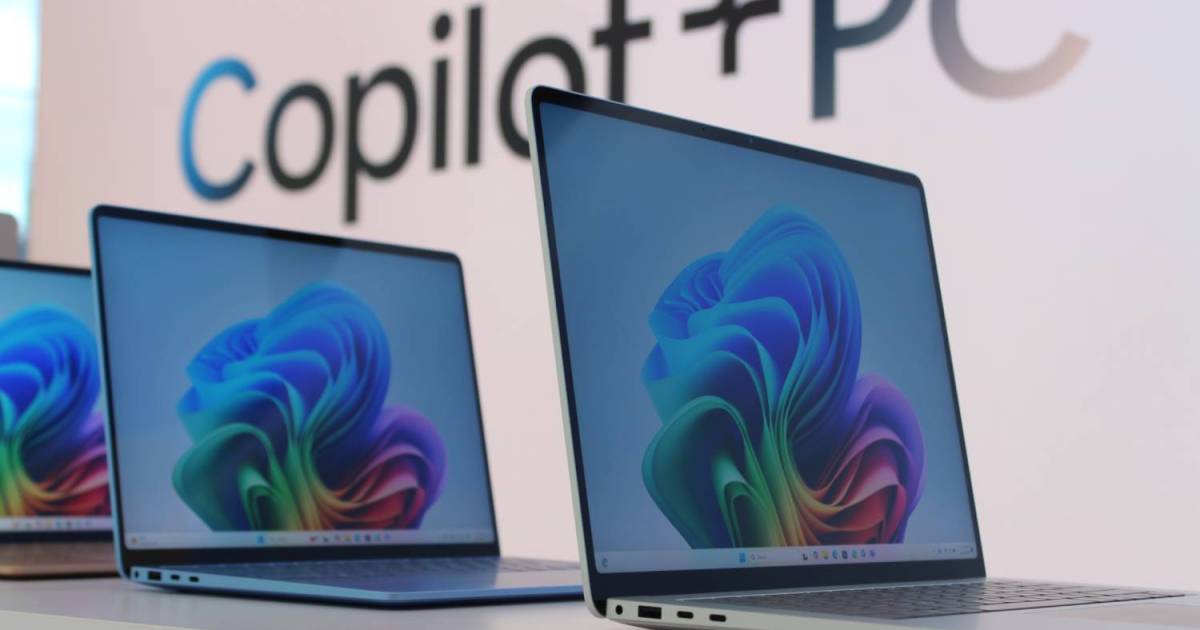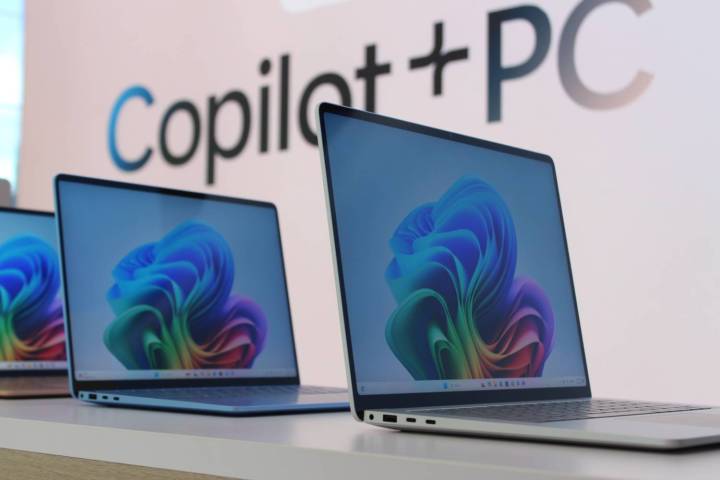 The Surface Laptop shown in front of a Copilot+ sign.
The Surface Laptop shown in front of a Copilot+ sign.
Microsoft’s influence on the PC industry is surging. While historically a background player, the recent launch of Copilot+ and subsequent hardware announcements demonstrate Microsoft’s newfound power to reshape the PC landscape. This shift is forcing industry giants like AMD and Intel to adapt, disrupting established release cycles and redefining the future of computing.
Disrupted Release Cycles
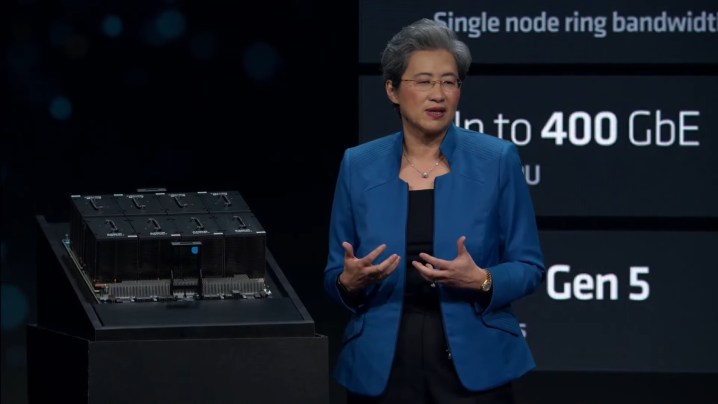 AMD
AMD
AMD’s response to Copilot+ offers compelling evidence of Microsoft’s influence. Breaking with tradition, AMD is prioritizing its Strix Point laptop CPUs over its Ryzen 9000 desktop processors. Typically, AMD, trailing Intel in the laptop market, prioritizes desktop releases. However, the simultaneous July launch of Zen 5 for both laptops and desktops signals a significant change. This strategic move highlights AMD’s eagerness to participate in the burgeoning Copilot+ ecosystem, currently exclusive to Snapdragon X Elite and X Plus chips but slated to include AMD and Intel processors.
This shift stems from Microsoft’s stringent Neural Processing Unit (NPU) requirements for Copilot+. While both AMD and Intel have existing NPUs, Microsoft mandates a minimum processing power of 40 Tera Operations Per Second (TOPS). Strix Point and Intel’s upcoming Lunar Lake chips meet this criterion, while previous generations fall short.
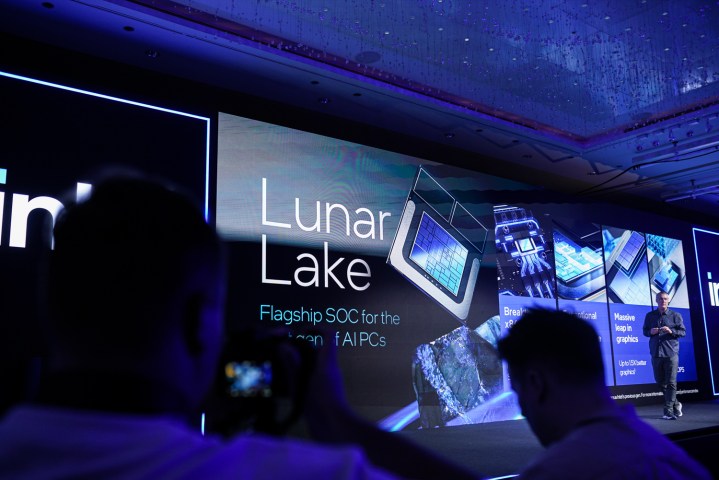 Intel announcing its Lunar Lake CPUs.
Intel announcing its Lunar Lake CPUs.
Intel, while less dramatically affected, is also accelerating its release schedule. Lunar Lake processors are expected in Q3 2024, significantly earlier than the late-2023 release of Meteor Lake. This accelerated timeline suggests a proactive response to the Copilot+ launch. While Intel hasn’t released specific models or detailed performance benchmarks beyond claiming “competitiveness” with Snapdragon X Elite, the accelerated launch clearly signals a desire to stay relevant in the evolving AI PC market. The influx of Lunar Lake and Strix Point laptops expected by year-end further underscores this trend.
These strategic shifts by both AMD and Intel strongly suggest a reactive response to the Copilot+ hype. More than just a new laptop category, Copilot+ represents a paradigm shift in mobile computing, a shift neither company wants to miss.
Competitive Tensions
 An Intel executive holding a Lunar Lake CPU.
An Intel executive holding a Lunar Lake CPU.
Beyond strategic maneuvering, there’s a palpable sense of competitive tension, particularly for Intel. As Microsoft’s long-standing partner in the laptop market, Intel appears to have been caught off guard by the Snapdragon-centric launch of Copilot+. Microsoft’s long-pursued goal of running Windows on ARM, combined with the AI buzz, created an opportunity they seized, seemingly leaving Intel and AMD feeling sidelined.
Intel’s anticipation of a Copilot+ update enabling full functionality on its hardware is evident. Laptop manufacturers, meanwhile, are already incorporating dedicated Copilot keys and the latest AI CPUs from both AMD and Intel. Intel’s EVP of Client Computing, Michelle Johnston Holthaus, expressed a competitive spirit, stating a belief that Intel will “ship more than our competitors combined” once their products hit the market.
While AMD has been less vocal, their Computex presentations prominently featured “Copilot+” alongside their Ryzen AI chips, suggesting a similar competitive drive.
Rebranding for the AI Era
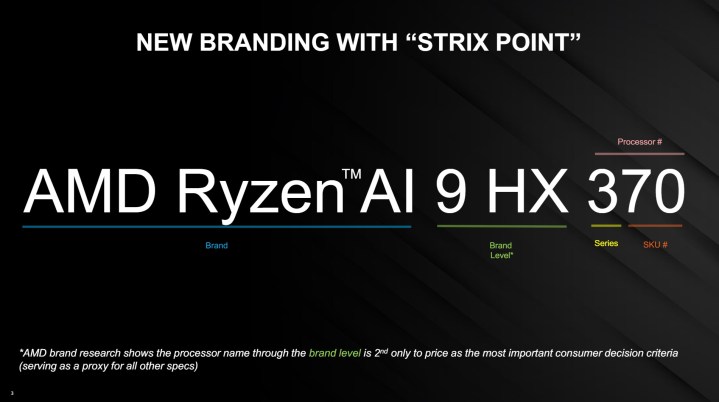 AMD
AMD
Both AMD and Intel have rebranded their mobile CPUs to align with the Copilot+ era, simplifying naming conventions and emphasizing AI capabilities. This reflects the challenge of communicating complex technical specifications, such as TOPS, to average consumers. These rebrands, rare occurrences in the industry, signify a significant realignment, aiming to clearly convey the AI capabilities of their chips to a broader audience.
The Future of PC Computing
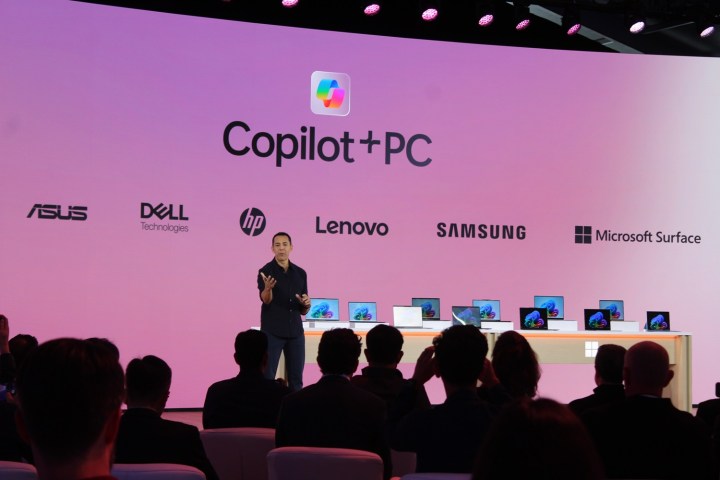 Microsoft showing off several Copilot+ PCs.
Microsoft showing off several Copilot+ PCs.
Microsoft’s aggressive push with Copilot+ has spurred both AMD and Intel to adapt, disrupting carefully planned product cycles. While this disruption is likely temporary, with both chipmakers eventually integrating into the Copilot+ ecosystem, it demonstrates Microsoft’s significant influence over the PC industry. This dramatic reshaping of the PC landscape raises questions about what further changes Microsoft might initiate as Copilot+ expands to the desktop market.



